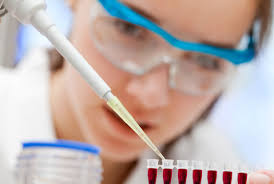It’s finally here! Some real hope of crushing the stigma of depression and getting help before depression becomes severe.
Anna Almendrala of the Huffington Post (09/16/2014) reported that science has found a new test to screen for depression. This means that depression can be identified in a person before it becomes an issue by doing a simple blood test!
“A new test that identifies particular molecules in the blood [specifically nine RNA blood markers] could help doctors diagnose patients with clinical depression, according to a new study published in the journal Translational Psychiatry. The blood test can also predict which therapies would be most successful for patients, and lays the groundwork for one day identifying people who are especially vulnerable to depression — even before they’ve gone through a depressive episode.” (HuffPost, 2014)
Another blood test used to indicate depression was announced in 2012 by Ridge Diagnostics in the U.S., but for that test doctors have to submit all samples to the company lab. This new test can be done by any clinical lab anywhere. That means faster results and faster help.
Not only is this good news for getting help for depression before it becomes severe, but such a test breaks down stigma. Depression can now be tested for just like any other physical illness. You think you’re depressed or at risk for depression? Go to your doctor and get a blood test. This makes people see depression more as a disease of the body than of the mind, which makes it easier to talk about depression. You’re not looked at like you’re the crazy person in the room. The stigma of being mentally ill is reduced.
A similar blood test developed by Dr. Zachary Kaminsky may reduce the number of suicides in the military.
“…new research reveals a genetic mutation that may be able to predict suicide risk with a minimum of 80 percent accuracy. The study, published July 30 on the website of The American Journal of Psychiatry, found that alterations to the gene SKA2 — which helps regulate the brain’s response to stress hormones — was more common in people who had committed suicide.” (HuffPost, 2014)
Often, people who are suicidal won’t tell others and if they are hospitalized, they will lie to get released. The military is particularly interested in these blood tests because of the high rate of suicides. Knowing when someone is severely depressed and thinking that someone is depressed is two different things. If you know, you can keep the gun out of the person’s hand.
This is all early research. The findings have to be validated by other researchers. So far it seems promising. If it works to detect depression, maybe it can be adapted to detect other mood disorders. Anything that helps break stigma and get early treatment is worthwhile considering.
[merlic_poll id="140"]


